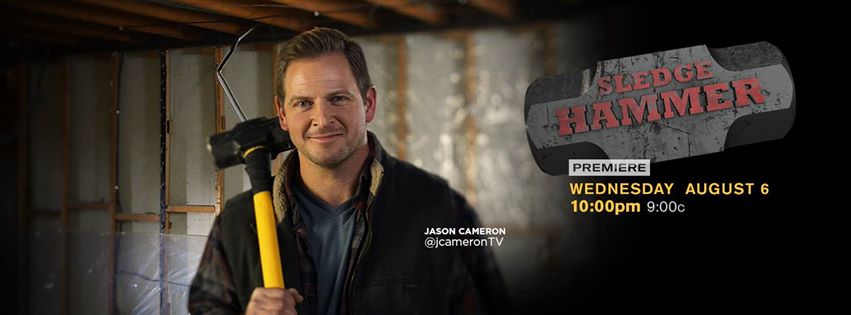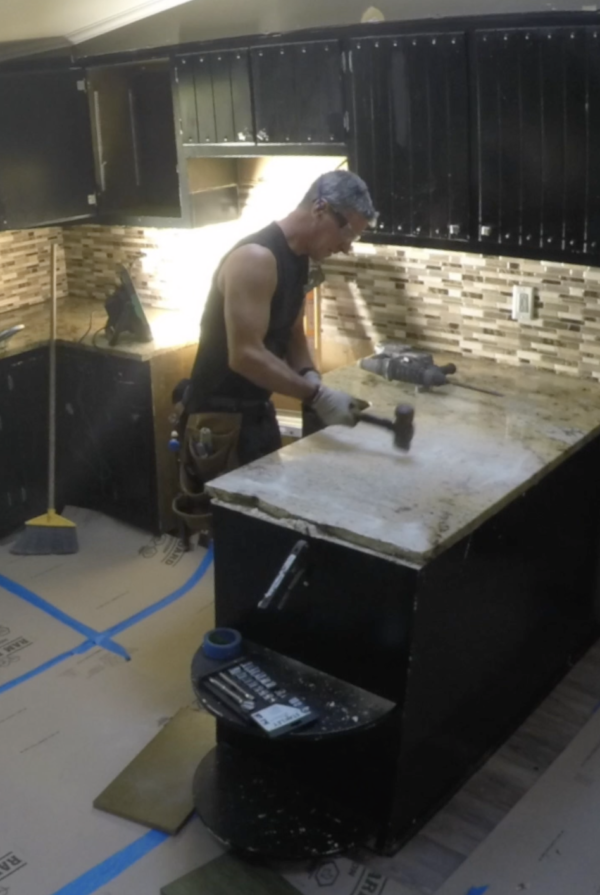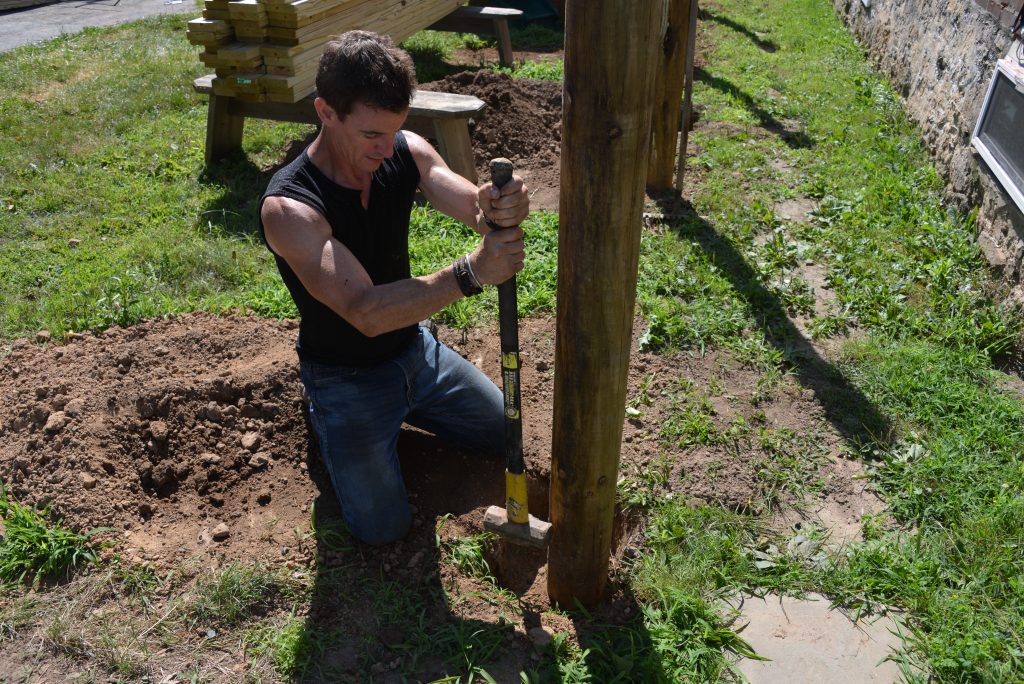
Knowing how to use a sledgehammer (a hammering sledge) and when to use it can make a huge difference in the amount of time and money spent on a home improvement project. Used at the wrong time or in the wrong way, a sledgehammer can create unnecessary mess and damage that creates additional work and keeps you from enjoying the home improvements you want to accomplish.
What’s in this article?
The sledgehammer’s TV persona
If you’ve watched home improvement television, you’ve likely seen someone go “full Thor” on plaster walls or kitchen cabinets with a sledgehammer.
That’s not just wrong. It’s extra wrong. That’s not how to use a sledgehammer.
While a sledgehammer is used to destroy things there are precious few reasons to bring one inside a house. There are a few, but only a few. Nothing like the grossly fictionalized idiocy TV passes off for actual technique or expertise. No contractor in his or her right mind bashes a room to pieces.
History of the sledgehammer
The word sledge in sledgehammer comes from an old English word sleagan, a word that means ‘to strike violently.’ It’s also the source for the word slay.
The sledge takes its origin from the hammer that’s been around with a handle since the Paleolithic era and more than 3 million years as just a striking tool without a handle. However, the first sledge hammers were mostly used by blacksmiths from the late 15th century until the last century. Sledgehammer used as a verb didn’t begin until around 1834. And it wasn’t a song until Peter Gabriel’s hit in 1986.
Two types of sledgehammer
There is the red carpet famous 8-pound sledge with the baseball bat-length handle, the 8 referring to the weight of its head. There are heavier hammers, but eight is a sweet spot for me. If I need a bigger tool than an 8-pound sledge, I’m renting a jackhammer.
Then there’s the 2-pound sledge. This looks more like a regular hammer and is a handy tool to have around.

So where do you use a sledgehammer?
To be picky about what sledgehammers do, they don’t “demolish” anything. Demolishing, aka “demo“, is a process of reverse-building using multiple tools and techniques that doesn’t FUBAR everything adjacent to the project site. And something that I could talk about for 2 hours, but not now. Here’s the low-down on how to use a sledgehammer.
Break up rocks or concrete
Sledgehammers are breakers. An 8-pounder makes large, hard things smaller, like rocks or concrete blocks or a concrete pad or clothesline footing. They’re good for driving a splitting wedge through a log. They bash stuck things loose.
If you’ve just bought a house and inherited a concrete slab or patio made of paving stones that are 100 pounds each–or flagstones in mortar–and you don’t want them any longer, you don’t want to get in touch with a concrete paving and repair company, bring in Sluggo. Size ’em up and truck ’em to the dump.
Split firewood
Got firewood to split? Set the wedge, then drive it home with the sledge. That’s how to use a sledgehammer like a pro.



When and how to use a sledgehammer indoors
Yes, a sledgehammer is helpful indoors. But nothing like I’ve ever seen on TV.
Breaking an entire kitchen apart with a sledgehammer is so dumb it’s hard to describe.
First, an 8-pounder is heavy, long and unwieldy. Even if it was a good tool for the job, most people couldn’t sustain using it for long.
Second, the TV shows ignore that blasting a wall cladding apart vibrates through to the other side of that wall, which will effect it by cracking the plaster and/or knocking pictures off the wall. Let’s not worry about if you blast the sledge into a water line or wire. Whatever…look who’s having fun demoing. (And viewers never see the production assistants cleaning up the mess, either.)
Sledgehammers don’t remove the screws that connect the cabinets to the wall framing, they just bash and smash the wall, likely deforming the screws making them more difficult to get out once the rampage ends.
Cast iron tub
However, sometimes the only way to get a cast iron bathtub out of a house is in pieces. It’s one of the few things that a house is literally built around. Cast iron is hard, but brittle and it’ll break if you hit it hard enough with an 8-pounder.
I like the wedge-end of the Fiskars sledge hammer for this. Before striking the tub, cover it with a drop cloth or moving blanket. Upon impact both the cast iron and the porcelain become shrapnel. If you can further isolate it from the kinetic energy the sledge strike generates, put it on carboard or a couple of other moving blankets. The energy that goes into the tub goes into the floors and walls.
Basement demo
While I have used a sledgehammer to break up a super thin concrete basement floor in my 120-year old house for a perimeter drain and basement remodel, that is so super specific, it’s hard to call it an indoor use. A 4-pounder may come in handy demo-ing a granite kitchen counter, something I have done.
Counters are brought in in pieces and assembled on site. When it comes time to remodel that kitchen, the counter needs to be broken up. Love taps with a 2-pounder sledge make the big small and don’t destroy the house.



When and how to use a sledgehammer outside



I also like a 2-pounder to nudge fence posts to a string line and to drive stakes to hold my string lines for fences.
How to swing a sledgehammer
Swinging a sledgehammer takes practice and it is a blog for another day. There is spectrum from love taps and nudges, to full body engagement. Whatever you do, don’t follow the HGTV shows on how to use a sledgehammer. You don’t have a crew of production assistants standing by to clean up the mess.





